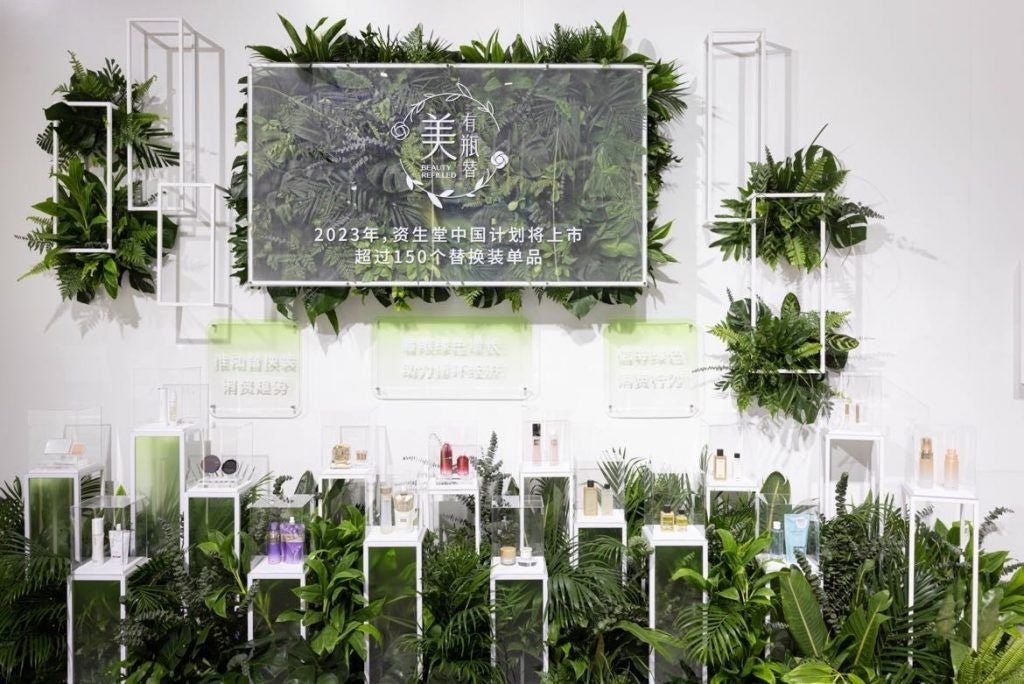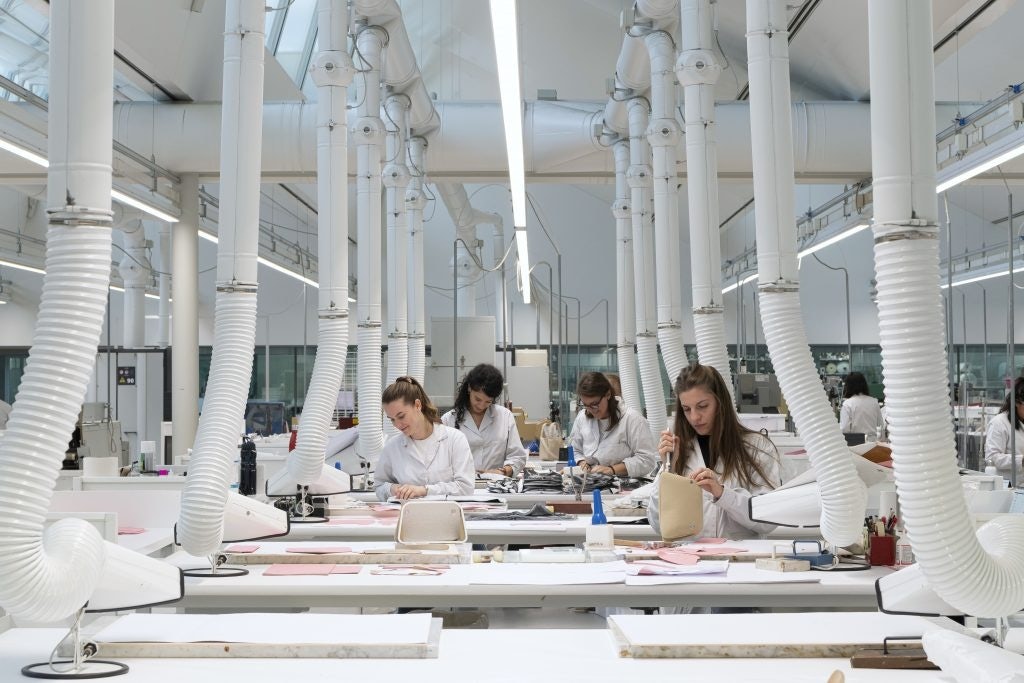This year a rising number of international and domestic players have actively taken part and promoted initiatives around Earth Day in China to showcase a commitment towards sustainability.
Domestic sportswear label Li-Ning released a limited-edition recycled skater clothing capsule collection in collaboration with Steve Harrington. Beauty brands Shiseido and Biotherm exhibited their green proposals during the China International Consumer Products Expo in Hainan. And luxury houses like Prada announced their past year’s results and upcoming ESG (environmental, social, and corporate governance) plans to further commit in the field.

The scenario reflects the reality of brands trying to cater to local consumers becoming increasingly climate-conscious through green practices. In 2021, Accenture observed that the pandemic strongly influenced Chinese shoppers’ sustainable consumption more than average globally. According to the consulting survey, 83 percent of Chinese consumers shared that the pandemic influenced them to make greener purchases versus 64 percent globally.
With consumers pursuing sustainable practices and looking for brands that align with their values, Earth Day allows businesses to demonstrate their progress in space. “Earth Day carries an incredible educational potential,” says Sennait Ghebreab, academic and program leader at the Istituto Marangoni, and author of Responsible Fashion Business in Practice: Sustainable Concepts and Cases across the Fashion Industry. “Year by year, it has been an effective way to promote eco-friendly programs, such as using renewable energy sources, resource conservation, and trash reduction,” she continues.
Here, Jing Daily looks at how brands approach the theme of sustainability in light of Earth Day.
Reducing packaging waste#
Local consumers’ growing interest in clean and green beauty pushes skincare and cosmetics brands to act on reducing their packaging, supply chain CO2 emissions, and business models to meet shifting ethical needs. L’Oréal signed a three-year deal with e-tailer Alibaba to establish low-carbon standards, develop new products, and create measurable circular economy solutions.

Other brands have come up with creative and innovative ways to address the issue for Earth Day. US-based skincare label Estée Lauder encourages its clients to reuse their serum and cream bottles for house decoration, offering DIY suggestions. Japanese beauty giant Shiseido is pushing for all its brands to integrate refill options into their selling methods. Both initiatives aim to reduce beauty’s notorious packaging and plastic waste issues.
Transparency and traceability of products#
According to consumer research and retail monitoring service NIQ’s 2023 report, 78 percent of respondents agreed that companies should show full supply chain transparency.
“The development of conscious consumers has resulted in more thoughtful customers, who question their purchases and demand transparent and honest communication from all brands,” states Ghebreab, the Istituto Marangoni fashion business course program leader.

In light of this, French beauty house Biotherm developed a product impact labeling system, which grades a product’s pollution levels during the supply chain process, allowing consumers to track the product’s environmental and social impact. Biotherm introduced the new initiative at China International Consumer Products Expo in Hainan.
Meanwhile, Prada Group is continuously investing in a vertical integration model to attain complete control and traceability of its supply chain — from sourcing, sampling, and production, to logistics. Eighty-eight percent of the group’s manufacturing occurs in Italy, and a large part is conducted inside the group’s owned facilities. Its logistic hub in Levanella, which covers 44,000 square meters, allows the brand to manage all its product shipments from the site.

Corporate social responsibility#
Thanks to the easy accessibility of corporate information online today, consumers increasingly hold companies and groups accountable for their environmental and social impact. The corporate image directly influences the perception of its brand portfolio.
Businesses are directly acting on a group level. Luxury conglomerates like Kering, LVMH, Prada, as well as Chinese sportswear group Xtep have all signed to reach net zero carbon footprint by 2050, the most ambitious goal of the Paris Agreement.
Environmental is one aspect of sustainability. Social responsibility is also becoming a key area brand are investing in. “Prada's motto is to be drivers of change. This vision is based on three pillars: planet, people, and culture,” shares Lorenzo Bertelli, Prada Group head of corporate social responsibility. At the Italian luxury maison, women represent the majority of the workforce, 63 percent of the corporate population, and 59 percent of the women hold managerial positions.

The fashion house is also investing in the future of the workforce. Through Prada Academy, the house trains young people to ensure the know-how is passed down to young generations. The company plans to employ 400 people by 2023, of which 200 will come from the Prada Academy. The latest figures show that 20 percent of Prada Group’s workforce is under 30.
Xtep’s 2022 ESG report points out that the company invests in its employees’ career growth and safety. In 2022, Xtep employee training hours reached 364,305 hours, training a total of 11,278 employees. Regarding employee health and safety management, Xtep implemented the Occupational Health and Safety Management System (OHSMS) at work.
Communicating Sustainability#
Meanwhile, Pwc’s 2021 Global Consumer Insights survey on China revealed that 72 percent of Chinese consumers said they try to buy from environmentally responsible companies versus 54 percent globally. Not only do brands need to act on their traditional business model to make it sustainable and socially responsible, but they also need to communicate their commitment to shoppers timely.
Sennait Ghebreab, the fashion academic adds: “The pivotal element to consider is always having a genuine and honest conversation and avoid greenwashing, as consumers penalize firms that release deceptive statements.”
That being said, Earth Day has become the perfect moment to deliver such a message.


